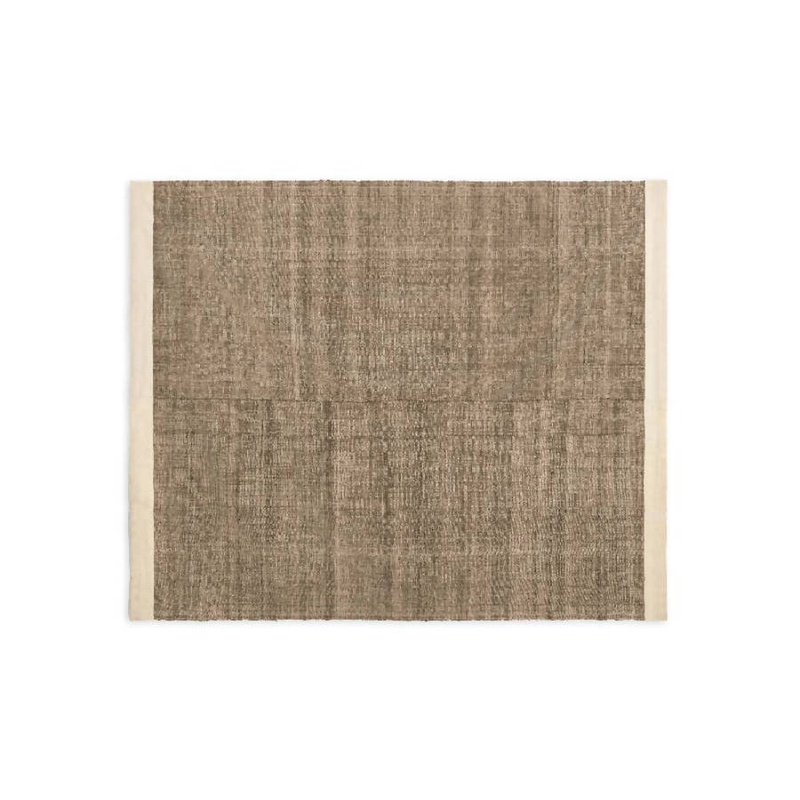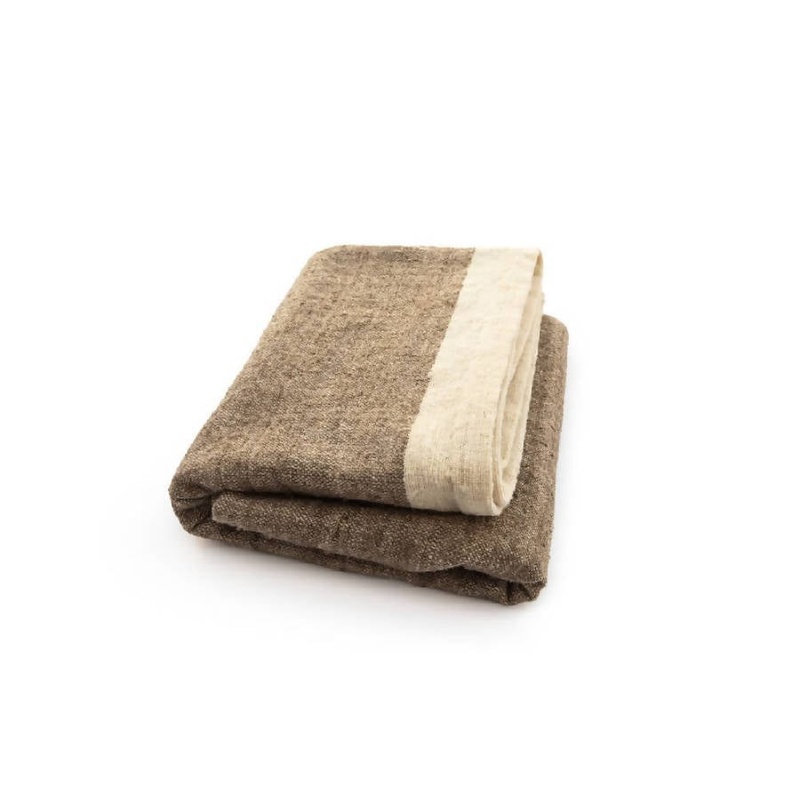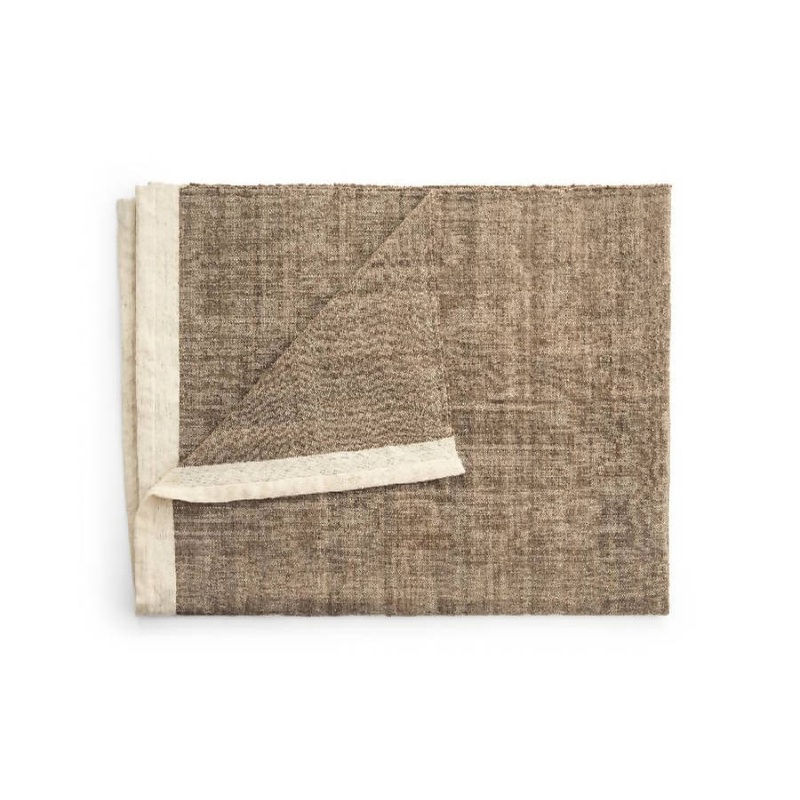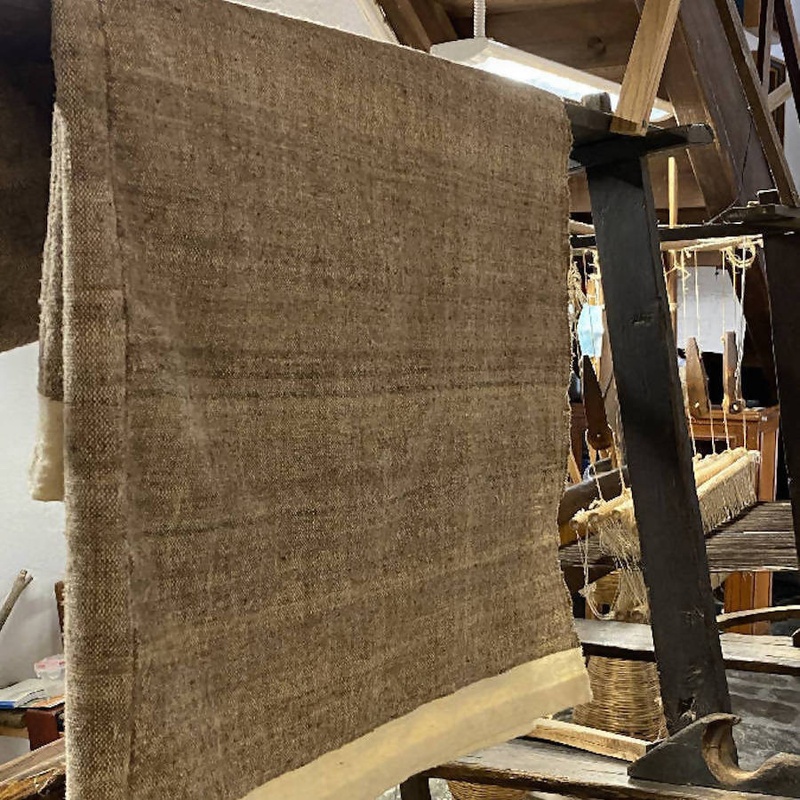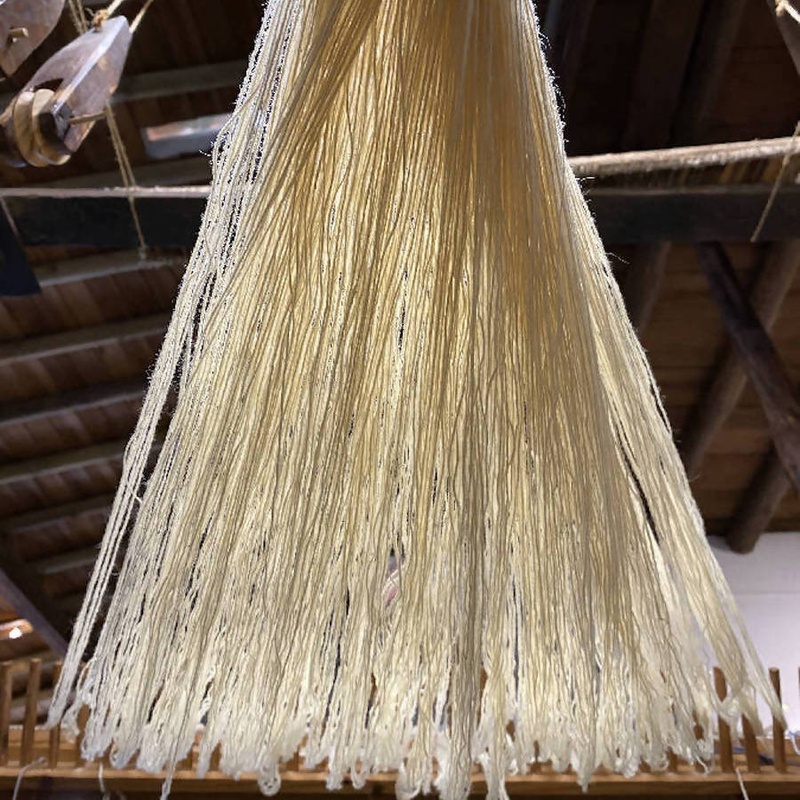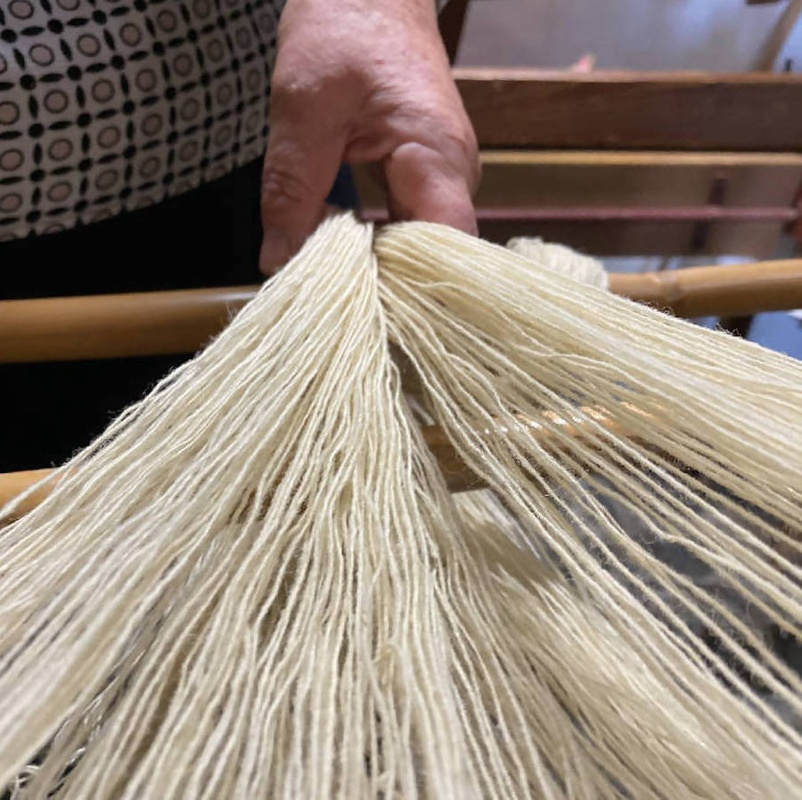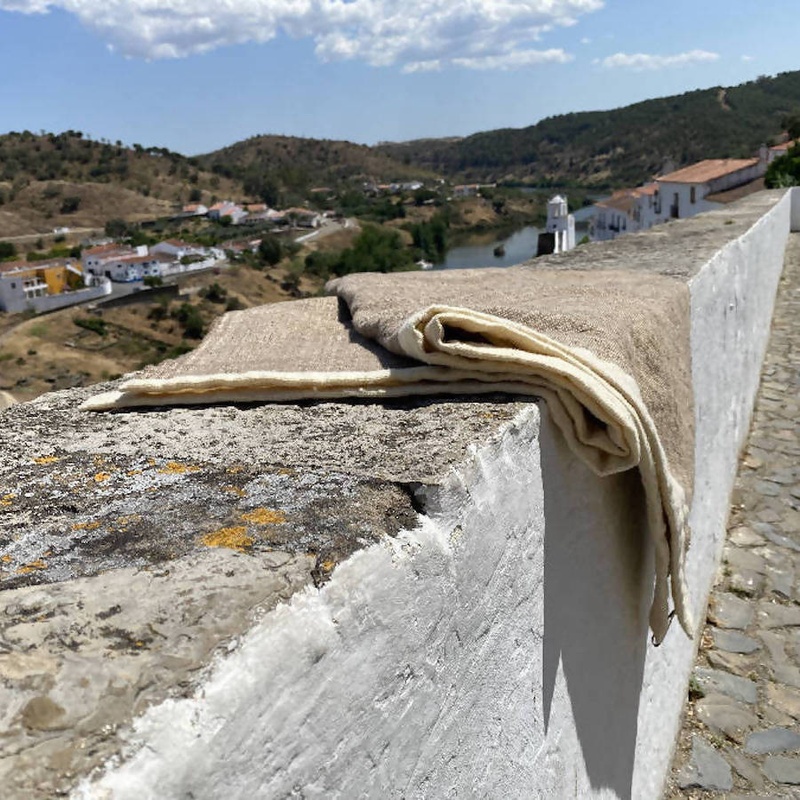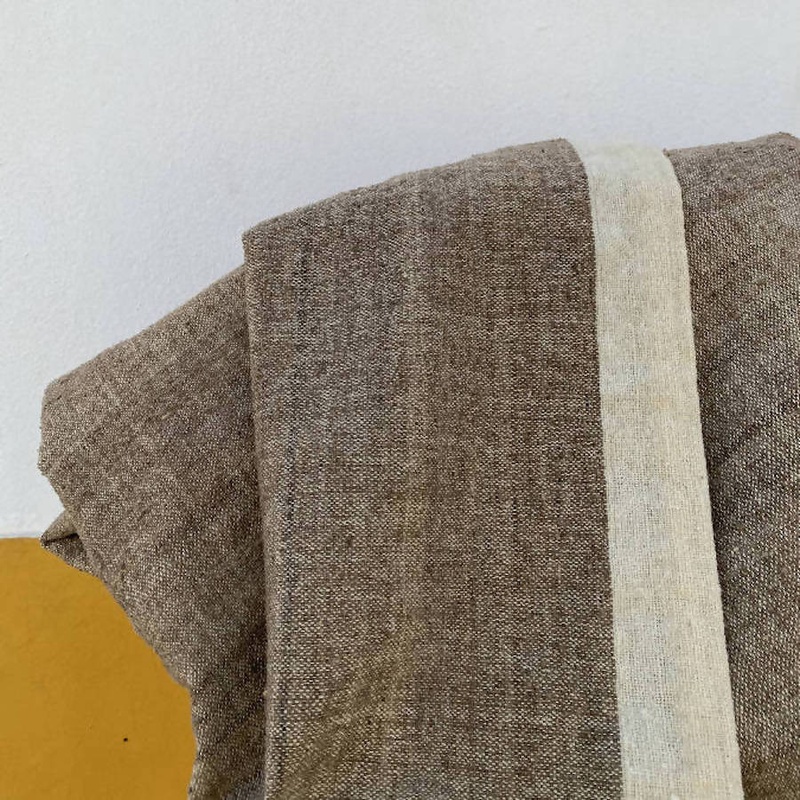Border Blanket
Woven on looms that are over 300 years old. The process is 100% handmade and the wool is sourced from the local Campaniças sheep, which has an extraordinary rusticity making it resistant to the harsh conditions of this semi-arid climate. These sheep consume less water than others, contributing with their presence to the maintenance of the landscape, and thus combating desertification.
The initiation of the blanket's cycle is the plants in these biodiverse pastures, which keep the sheep content and the wool strong. This is a pure example of farm to textile and is part of a regenerative pastures project taking place in the area surrounding Mértola, classified as a Natural Park since 1995.
By keeping this tradition of weaving alive, the sheep, the shepherds and the landscape are protected, making this an art form that is preserving much more than heritage.
By purchasing these blankets, you are supporting the health of an ecosystem threatened by desertification. Each one speaks to the origins in Mértola and is woven to last generations.
This piece is a simple 2 color weave that celebrates the vega marlada color wool that is rarer in the local sheep.
Handwoven by both Helena Rosa and Fatima Mestre,
Helena Rosa, the master weaver in Mértola who has been dedicated to the art of weaving for 33 years, she has led the cooperative for the past 13. Passionate about weaving the local traditional patterns that have been passed on from weaver to weaver through the centuries, she safeguards this knowledge and prays there will be a younger generation to carry on these traditions. Helena is also an advocate for a 100% handmade process. She believes that machines change the feeling of the wool, that there is a sensitivity when the cycle of washing, carding, spinning and weaving is done by hand, this she would like to preserve.
Fatima began weaving with Helena the master weaver 7 years ago. Both of her grandmothers spin tarn and her great grandmother was a weaver. She grew up watching the weavers in the village, fascinated as a child. She specializes in the Cobertor weaves, the recycled cotton fabric weaves called Mantas da Retalhos and weaving linen.
The Mértola Weaving Workshop Cooperative was created in 1987 with the aim of safeguarding traditional weaving in the territory of Mértola. Currently, in addition to a weaving workshop and shop, the space is an integral part of the Municipal Museum of Mértola.
